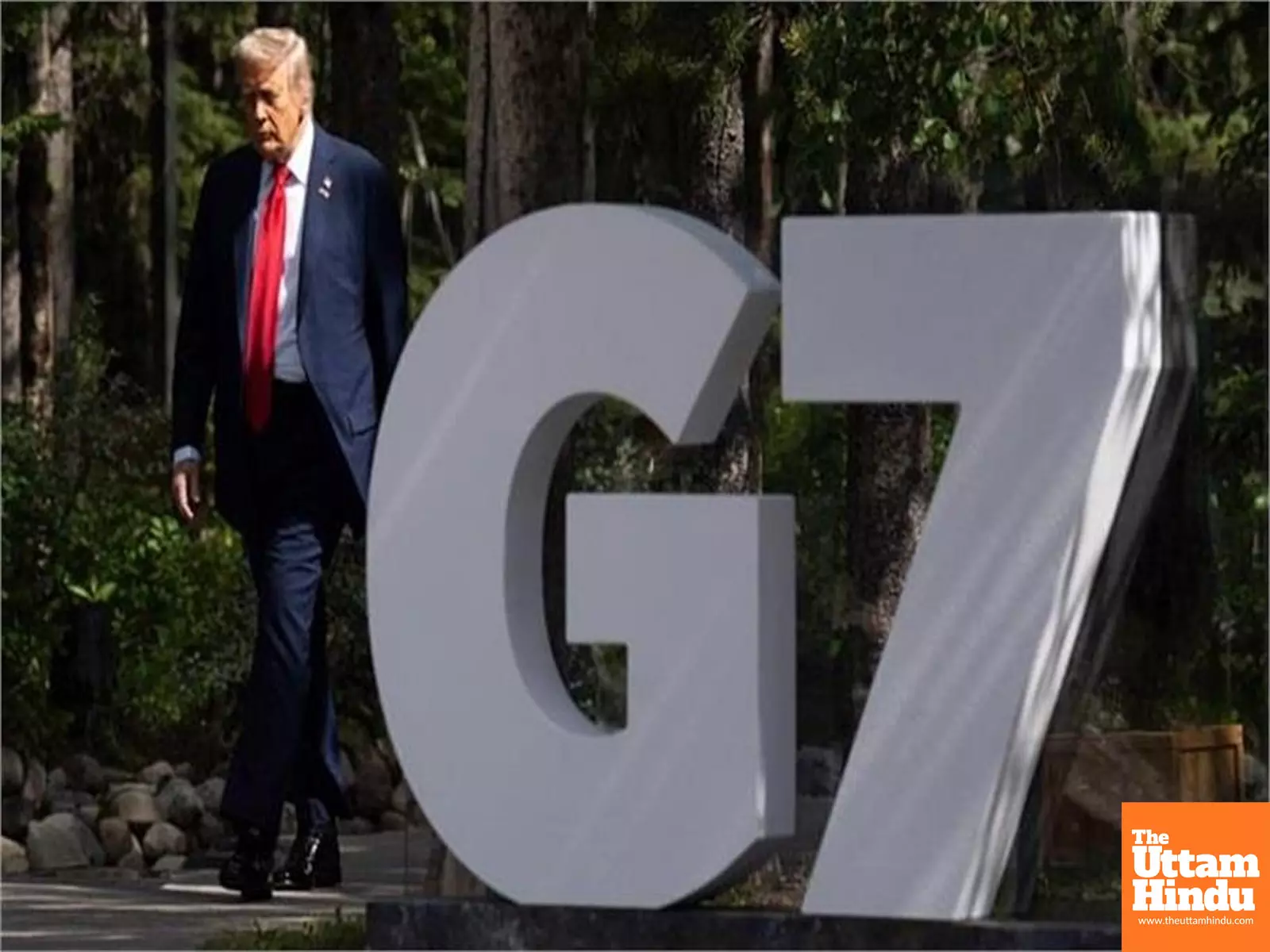Cracks Emerge in G7: No Unity on Ukraine & Iran as Trump’s Return Looms Large

Ukraine (The Uttam Hindu) : The annual summit of the Group of Seven (G7) concluded on a muted note this Tuesday, with the leaders of the world’s major advanced economies failing to reach significant agreements on some of the most pressing global challenges — notably Russia’s ongoing war in Ukraine and the escalating Israel-Iran conflict. Despite strong symbolic gestures of unity and determination, the summit highlighted growing divisions within the bloc and underscored the difficulty of shaping cohesive global policy in today’s multipolar world.
The meeting, hosted this year amid high global tensions and economic uncertainty, was attended by Canadian Prime Minister Mark Carney and his counterparts from Britain, France, Germany, Italy, Japan, and the European Union. Notably absent from the summit’s final stretch was U.S. President Donald Trump, who left the conference early, drawing international attention and further casting doubt on the group’s cohesion.
Focus on Ukraine and Zelensky's Plea
Ukrainian President Volodymyr Zelensky made a direct appeal to the G7 leaders, urging for continued and intensified support in Ukraine’s defense against Russia. "We need the support of allied countries and that's why I have come here. We are ready for peace agreements, unconditional ceasefire. I think this is very important, but we need to put pressure for this," Zelensky said during the concluding session, which was also attended by incoming NATO Secretary-General Mark Rutte. Zelensky's statement was seen as both a call for diplomacy and a strategic push for stronger collective action. However, while all G7 members expressed support for Ukraine’s sovereignty and condemned Russian aggression, they failed to deliver a concrete, unified strategy on how to de-escalate the conflict or bring Russia to the negotiation table.
Disagreements Over Middle East Policy
The G7 also grappled with the growing instability in the Middle East following recent hostilities between Israel and Iran. Despite discussions, there was no unified stance or statement that clarified the bloc's collective policy on the issue. Several European leaders reportedly pushed for a stronger diplomatic approach, while others expressed concern about escalating tensions and the role of proxy groups in the region.
Economic Concerns and Strategic Minerals
Outside of the geopolitical discussions, G7 leaders did find some common ground on economic matters, particularly the threat posed by non-market policies that could restrict access to critical minerals — essential components for manufacturing batteries, electronics, and renewable energy technologies. The bloc agreed to collaborate more closely to secure resilient global supply chains and reduce dependence on sovereigntysources, particularly from China.
AI Regulation and Technology’s Double-Edged Sword
Another key agenda item was the regulation of artificial intelligence (AI). Leaders acknowledged the immense potential of AI to drive technological revolutions, but they also sounded the alarm on its possible negative effects on employment, privacy, and environmental sustainability. The summit ended with a joint declaration pledging to create frameworks to "limit the adverse effects of AI on jobs and ecosystems," while fostering innovation and ethical deployment of emerging technologies.
A Summit of Symbolism Over Substance
Despite several statements of intent and calls for multilateral cooperation, the 2025 G7 summit ultimately failed to deliver a breakthrough on the major crises facing the world. Analysts have pointed to the early departure of President Trump as a symbolic blow to the G7’s efforts to present a united front, particularly on security and defense matters. Observers also noted that internal political dynamics — including upcoming elections in several member countries and diverging national interests — are increasingly challenging the group’s ability to act decisively.
Looking Ahead
As global instability continues to grow, questions are mounting over whether the G7, once seen as a pillar of international order, can still effectively lead the world through an era of uncertainty and transformation. The summit concluded with a commitment toreconvene and continue dialogue on unresolved issues. However, without tangible outcomes on the two major conflicts discussed, the path forward remains unclear.
